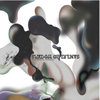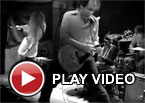Alexander Rishaug, "Shadow of Events"
 This is my first exposure to Rishaug's work, but he has maintained a somewhat high profile in Scandinavia though his work with the improv ensemble ARM. On this, his third solo album and first for Dekorder, he seems to draw a lot of his inspiration from the laptop-based drone/ambient of Mille Plateau/Rittornel's golden age. He's admittedly a bit late for that particular party, but he seems to be endearingly and stubbornly well-aware of that. Fortunately, I am quite fond of that particular period in recent music history, so these deep and thoughtfully constructed soundscapes frequently hit the mark for me, despite the fact that they don't bring anything particularly "new" to the form. Good music is good music.
This is my first exposure to Rishaug's work, but he has maintained a somewhat high profile in Scandinavia though his work with the improv ensemble ARM. On this, his third solo album and first for Dekorder, he seems to draw a lot of his inspiration from the laptop-based drone/ambient of Mille Plateau/Rittornel's golden age. He's admittedly a bit late for that particular party, but he seems to be endearingly and stubbornly well-aware of that. Fortunately, I am quite fond of that particular period in recent music history, so these deep and thoughtfully constructed soundscapes frequently hit the mark for me, despite the fact that they don't bring anything particularly "new" to the form. Good music is good music.
One curious thing about this album is that it was allegedly influenced by minimalist classical composers like Steve Reich and Terry Riley, but it doesn't seem like that influence manifests itself in any overt way.Maybe it is an entirely philosophical inspiration, as Harold Budd seems like a much more plausible kindred spirit stylistically: Rishaug certainly betrays a love for rippling beds of heavily reverbed piano.Alexander is a bit more varied in his instrumental arsenal than Budd though, as the six untitled pieces here also incorporate organ, guitar, field recordings, and "a nervous radio."And a computer, of course, which is where the Mille Plateaux connection comes in.Regardless of which instrument a piece is built around, however, they all tend to follow a fairly unwavering trajectory.There is definitely an archetypal "Alexander Rishaug sound," as he processes everything into warm, blurred homogeny, then slowly escalates from a fragile and minimal introduction into immersive and densely layered, blissed-out crescendo.He generally leaves his field recordings relatively unmanipulated, which I deem to be a wise move.Slow-moving oceans of drifting and shimmering sound can get pretty tedious and one-dimensional fairly quickly, so the occasional intrusion of sharp, clear sounds (frogs, footsteps,a fire) serves both to add a sense of place and mystery and provide a nice textural counterbalance to the amorphously enveloping music beneath.Despite covering such specific territory, however, Rishaug manages to throw in some inspired twists every now and then.I was especially struck by the unpredictable, diffuse twinkling of the second piece, as well as its unexpected plunge into darker waters near the end.
The two most successful pieces are the second and the sixth.While the superficial content is quite similar to everything else on the album in both cases, both pieces are simply assembled and executed brilliantly.The second piece is built around a darkly throbbing organ motif intermittenly augmented by subtle crackling and hissing.Gradually, a single quavering organ chord emerges to dominate the piece and some glitchy, skipping laptoppery appears, but the slow pulse never stops and the underlying chords provide a supremely haunted mood throughout.The sixth piece is less immediately gripping, but its waxing and waning tones intertwine quite hypnotically.Also, it is pretty long.A good rule of thumb seems to be that if Rishaug grants a piece more than a five-minute running time, it will probably be something pretty amazing.The only misfire is the fourth piece, which sounds like Alexander left a microphone running as he did some work around the house, then collaged the recordings.That became doubly perplexing when I learned that Shadow of Events took five years to finish, as I don't see how spending that long with this material could have failed to alert him to that song's shortcomings in relation to everything surrounding it.Still, five out of six is not bad at all, and Rishaug at his best is a formidable talent.
Samples:
 




